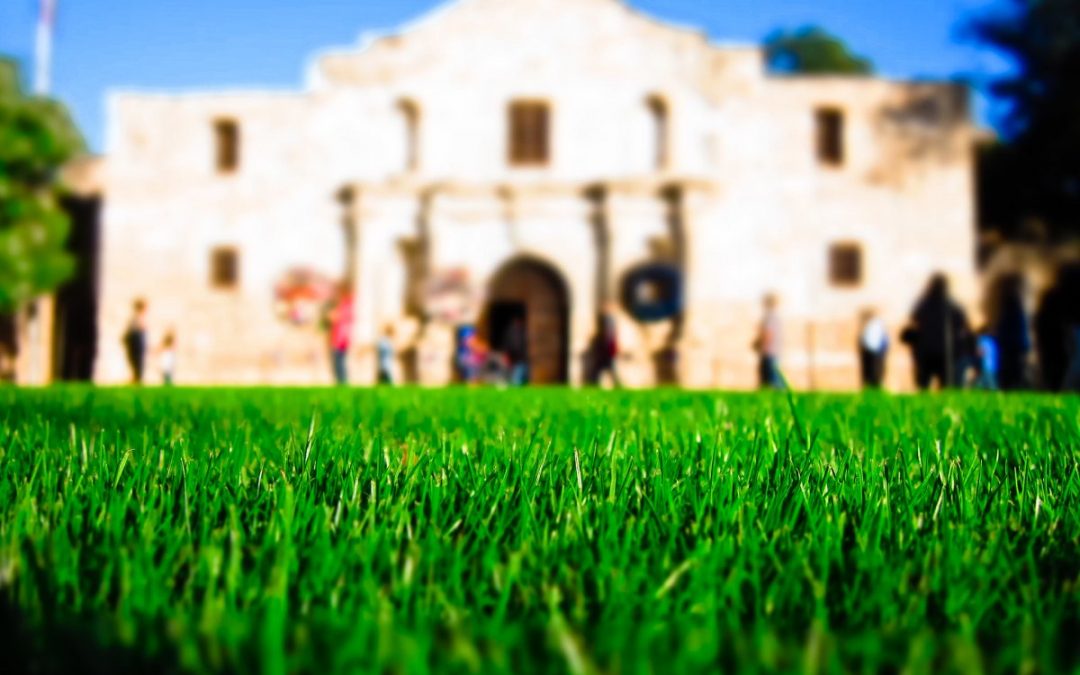Houston, we have a problem … a lawn problem. East Texas is humid, rainy, and blazing hot, with frequent hurricanes. Such volatile weather conditions make lawn care difficult but certainly not impossible.
Warm-season grasses grow best in hot summer areas, letting them thrive in East Texas’ intense heat. Below are the best grasses for East Texas and its sometimes-intense climate.
In this article:
- Zoysiagrass
- St. Augustinegrass
- Centipedegrass
- Bermudagrass
- FAQs About the best grass for East Texas lawns
Zoysiagrass
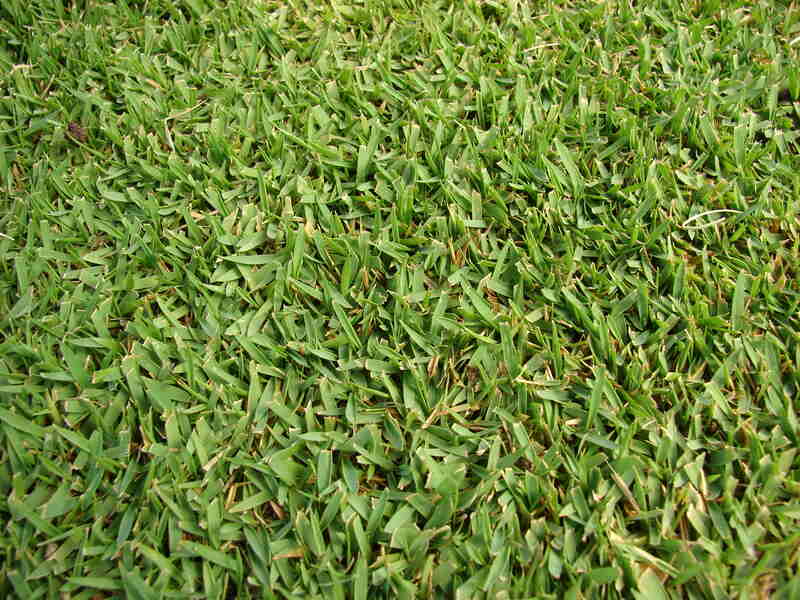
Photo Credit: Forest & Kim Starr / Wikimedia Commons / CC BY 3.0
Zoysiagrass is drought-tolerant, moderately shade-tolerant, and cold-tolerant, making it a popular choice for lawns in East Texas. It also handles foot traffic well, so it does well on lawns.
Zoysiagrass comes in at least 11 varieties, all used as turfgrass. Some varieties perform better at higher mowing heights, while others have improved shade tolerance. The type of Zoysiagrass you choose depends on your environment and how much work you plan to do.
Classification: Warm-season grass
Spreads by: Stolons and rhizomes
Shade tolerance: Moderate
Drought tolerance: Moderate to high
Foot traffic tolerance: High
Maintenance needs: Mow about once a week
Mowing Height: 1 to 2 inches
Potential for disease: Low to moderate
St. Augustinegrass
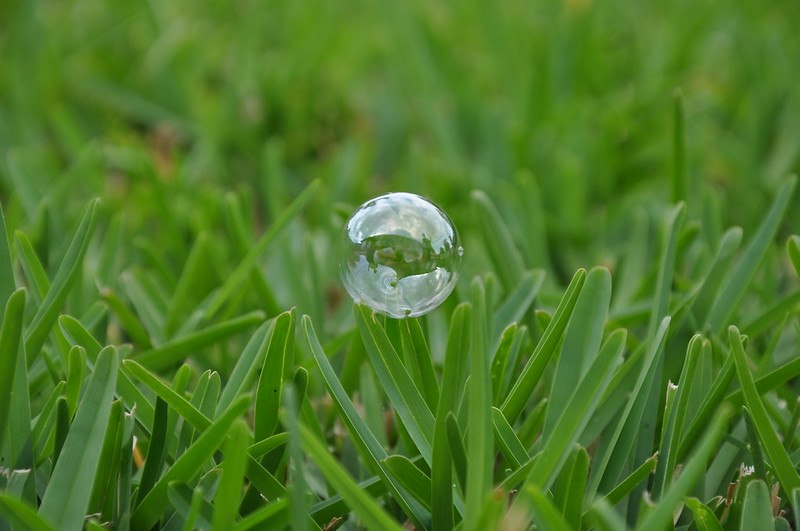
Photo Credit: Jay Morgan / Flickr / CC BY-ND 2.0
Compared to other warm-season grasses, St. Augustinegrass tolerates shade well. It’s drought tolerant as well (although not as much as Zoysiagrass) and can handle being cut at higher heights.
Classification: Warm-season grass
Spreads by: Stolons
Shade tolerance: High
Drought tolerance: High
Foot traffic tolerance: Low
Maintenance needs: Handles tall mowing heights
Mowing Height: 2.5 to 3.5 inches
Potential for disease: High
Centipedegrass
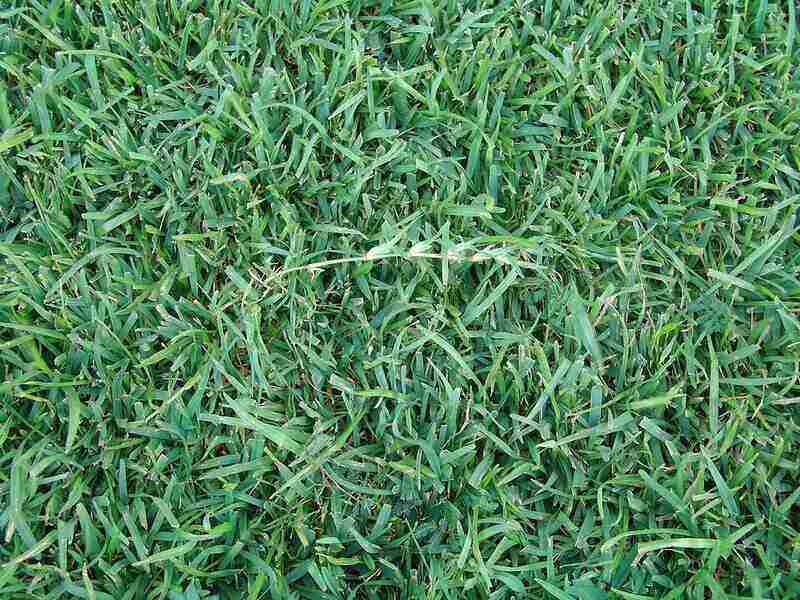
Photo Credit: James Becwar JamesBecwar / Wikimedia Commons / CC0
If you want a low-maintenance lawn, consider centipedegrass. Centipedegrass performs best in East Texas’ acidic soils and requires little mowing, fertilization, and irrigation. However, it needs irrigation to combat drought (which it can be sensitive to). It also doesn’t like heavy foot traffic.
Classification: Warm-season grass
Spreads by: Stolons
Shade tolerance: Moderate
Drought tolerance: Moderate
Foot traffic tolerance: Low
Maintenance needs: Mow every 7 to 10 days
Mowing Height: 1.5 to 2 inches
Potential for disease: Low to moderate
Bermudagrass
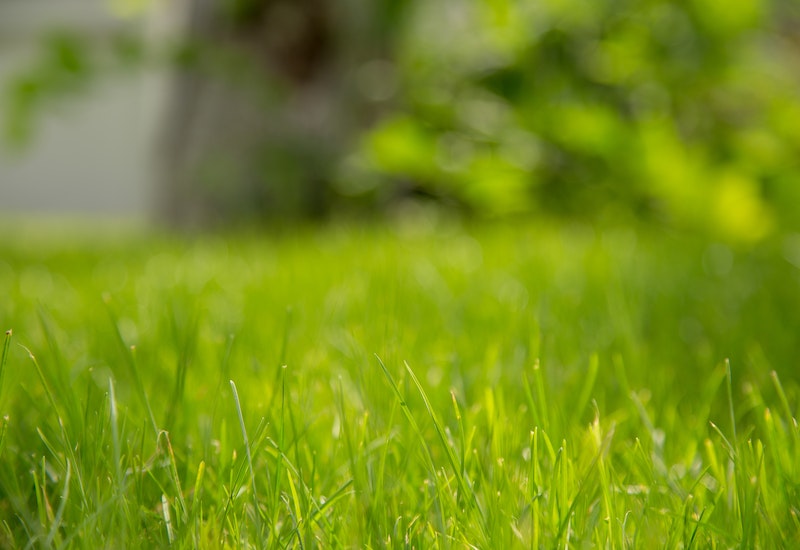
Photo Credit: Pexels
Bermudagrass is versatile because it tolerates drought and foot traffic exceptionally well. For this reason, it’s perfectly suited for golf courses, athletic fields, and lawns and comes in many varieties.
Bermudagrass isn’t low-maintenance, as it requires frequent mowing and occasional fertilization. It also doesn’t like shady areas, so avoid it if you have a shady backyard.
Classification: Warm-season grass
Spreads by: Both stolons and rhizomes
Shade tolerance: Low
Drought tolerance: High
Foot traffic tolerance: High
Maintenance needs: Moderate
Mowing Height: 1.5 to 2.5 inches
Potential for disease: Low
FAQs about the best grass for East Texas lawns
If you have a shady lawn, St. Augustinegrass is your best bet. Zoysiagrass and centipedegrass are also shade-tolerant, but avoid bermudagrass, which doesn’t like shade.
The most drought-tolerant grasses are St. Augustinegrass and Bermudagrass.
Zoysiagrass only requires mowing once a week, making it the most low-maintenance, but centipedegrass is worth looking into if you don’t mind mowing a little more often (7 to 10 days).
If you plan on having many people and animals on your lawn often, bermudagrass and zoysiagrass are the way to go.
Where do we go from here?
Picking the right grass for your East Texas lawn boils down to your living space and how much work you want to put into your lawn. There isn’t a “one size fits all” type of grass.
Once you’re ready with your chosen grass, contact Wikilawn’s lawn care pros, and we’ll give you a green, lush lawn. You won’t need to lift a finger.
Main Photo Credit: The Alamo / Nan Palmero / Flickr / CC BY 2.0

